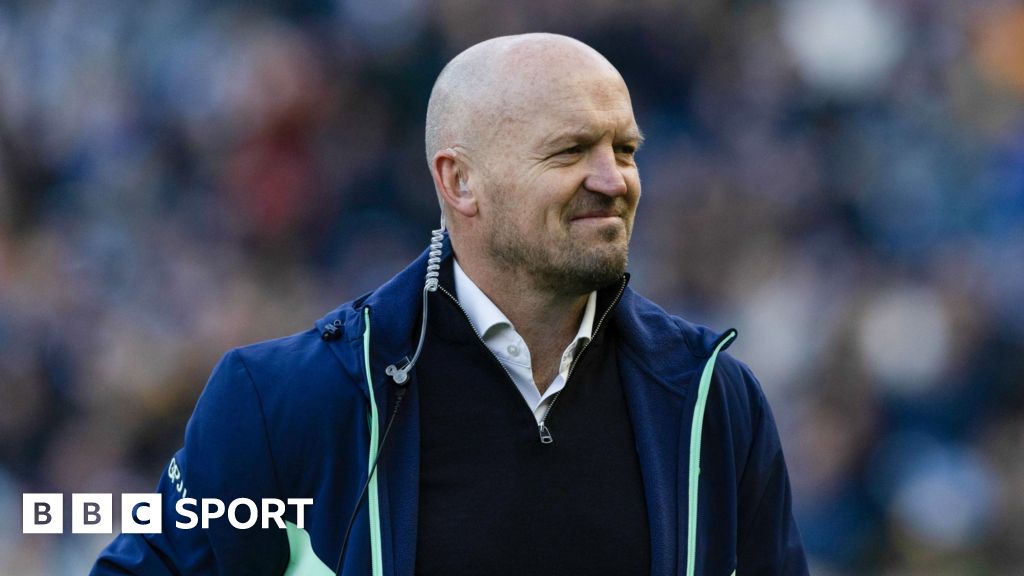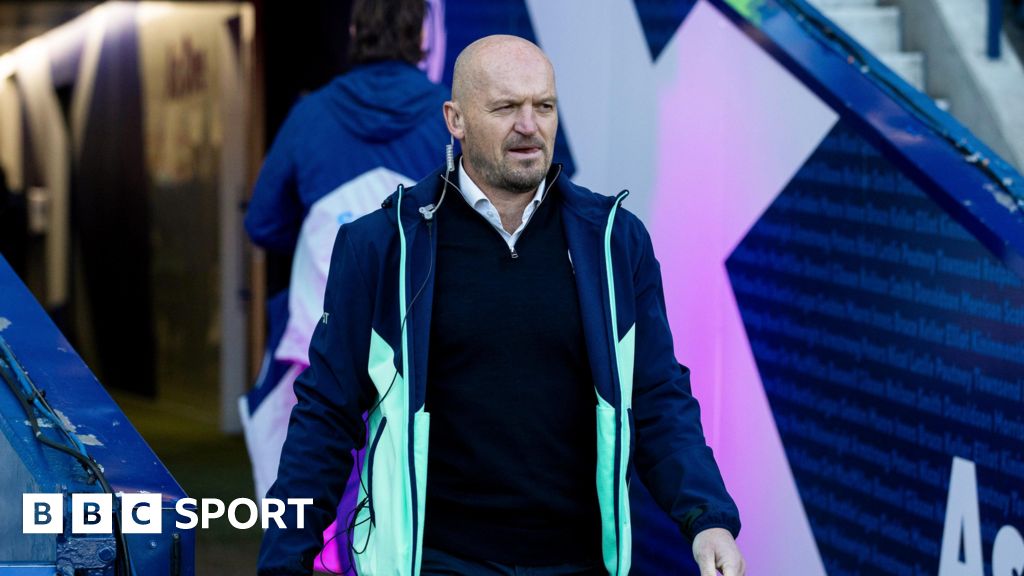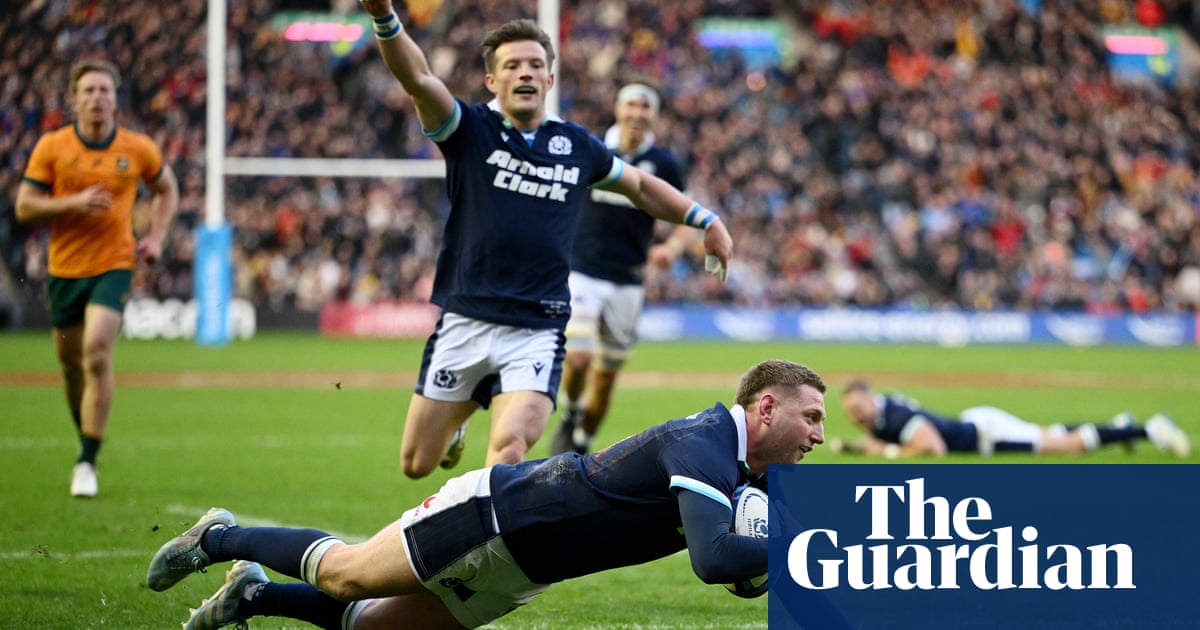Horse Racing
Childhood leukaemia: How winning racehorse ‘changed everything’
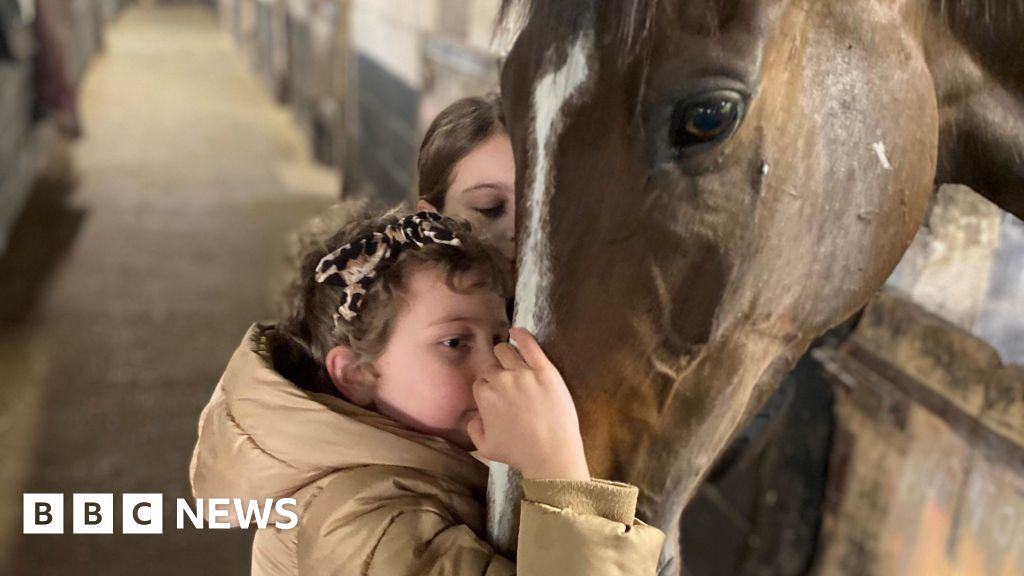
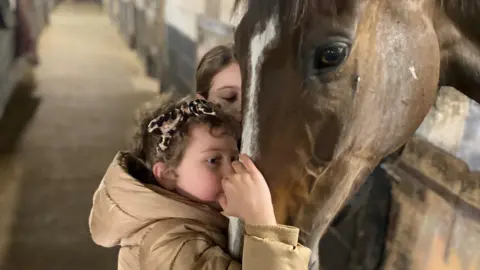 Family photo
Family photoWhen five-year-old Betsy had an ear infection, stomach pain and fever, her GP put it down to a virus. But Betsy’s mother Charlotte had a gut feeling something was very wrong.
Betsy was taken to A&E with stomach pain, and a food intolerance was suspected.
But Charlotte began to research her daughter’s symptoms and approached her GP again – this time querying leukaemia, and they agreed to do some blood tests.
“I was desperate… it was complete panic… I knew that there was something wrong,” she recalls.
“She was fatigued, her personality had changed, she didn’t want to play with her friends or her sister any more.”
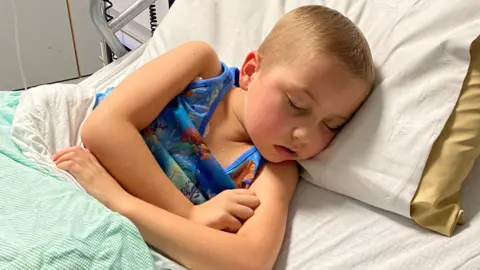 Family photo
Family photoWithin days of Betsy’s blood tests, in February 2023, Charlotte received a phone call asking her to take Betsy to the Princess of Wales Hospital in Bridgend to be given the results.
“For that drive there, I couldn’t speak,” she remembers.
“Panic set in, that sickness and I remember just shaking, my whole body was trembling until I got to the hospital.”
With her horse trainer husband Christian away working in Cheltenham, she and Betsy were ushered into a room where they received the news Charlotte had been dreading.
“I had a gut-feeling, I knew it was going to be [leukaemia]…. but it still hit me like a bus,” she says.
“I was numb… I remember just standing up and holding onto the bed and not being able to speak, I got that noise in your ear like you see in films and everything sort of stopped.”
Betsy was diagnosed with acute lymphoblastic leukaemia (ALL) and was immediately admitted to Noah’s Ark Children’s Hospital for Wales in Cardiff, where a play therapist was able to explain the diagnosis to her in a way that she could understand.
Within two days, chemotherapy had started.
“The treatment for leukaemia is very long and very gruelling and the first six weeks are particularly difficult,” says Charlotte.
“They’re put on a steroid which completely changes their personality and the way that they look and I don’t think we were quite prepared for all that.”
Betsy interjects with a giggle: “I was really fat.”
“She was very, very poorly,” interjects Charlotte.
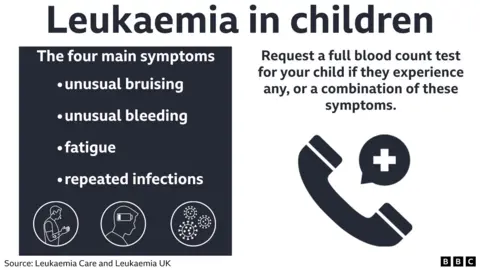
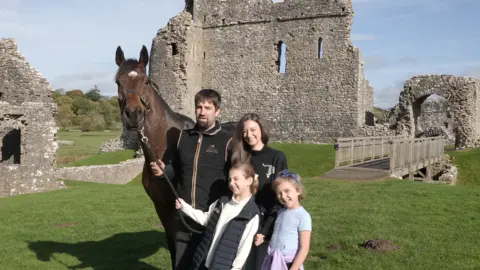
Since then, her family say their lives have been “a rollercoaster of emotions”.
Just six weeks into Betsy’s treatment the racehorse trained by her dad, Kitty’s Light, won the Scottish Grand National, allowing the family to experience happiness in the darkest of times.
“Kitty’s Light came at the right time in our lives,” says Charlotte, sitting outside their stables in Ogmore-by-sea, Vale of Glamorgan, with Betsy on her lap.
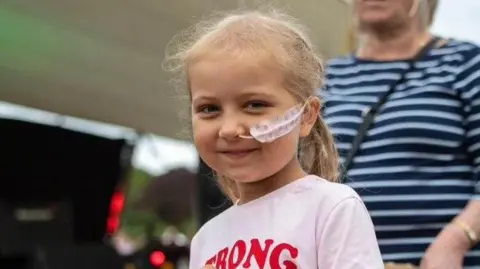 Family photo
Family photo“We were having a particularly bad day with Betsy at home and I wasn’t even interested,” says Charlotte.
“I wasn’t going to watch it but my mother-in-law and my mother were like ‘come on, we’ll put it on, it’s nice for her to see her daddy on telly’.”
Little did she know the horse was about to run the race of his life.
“It was so emotional, I was jumping around the place after the first fence,” says Charlotte.
Betsy adds: “All I remember is mum screaming up and down. I had a headache as well – and that made it worse.”
“I’m sorry,” giggles Charlotte.
It was the tonic the family needed.
“It was just that kick up the bum that said ‘come on, things are going to be alright, it isn’t all doom and gloom, we’re going to have some happiness along the way’,” says Charlotte.
“It changed things for us, gave us a focus… something to look forward to.”
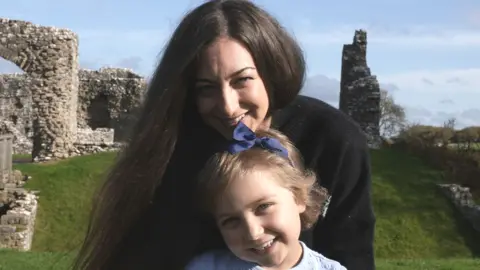
Charlotte admitted she had found a resilience she didn’t know she had.
“Part of it is that you’ve got no choice,” she says.
“At the start I crumbled a little bit but you’ve got to change your mindset and it was finding the positives in every day… that’s still what gets me through.”
She has been moved by family, friends and the horseracing community who have rallied round.
The bonds that Betsy has made with other children being treated at Noah’s Ark and that she and Christian had formed with their parents also helps them get through.
“The friendships that we’ve made will probably be forever now, for a lifetime. We’re very lucky,” she says.
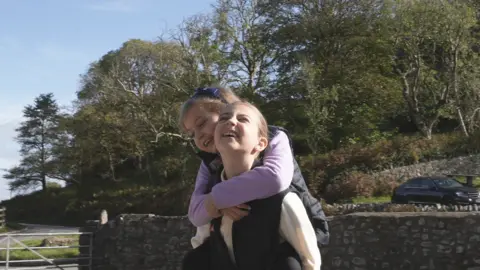
Betsy is now in the maintenance phase of her treatment, which will continues until May. It includes daily oral chemotherapy, monthly chemotherapy through her portacath – a small device that’s under the skin to give long term access to a vein – and a lumbar puncture every three months.
Her hair is growing back too, she is able to enjoy playing with her older sister Tilly, nine, and is back at school.
Charlotte has returned to her job as a physiotherapist with a new sense of perspective.
“It’s been a rollercoaster ride of emotions… but for now we’re managing well and we’re positive and we’re happy and we make the most of every day that we have together.”
“It’s completely changed my outlook on everything,” she says.
“Nothing will ever worry me ever again… nothing’s more important in life than your children, your family being well and healthy and happy. Anything else can be sorted out.”
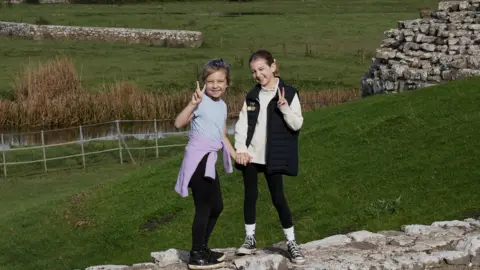
Charlotte says although she still cries a lot she refuses to feel sorry for her family.
“I’ve never felt ‘why us’ because it’s got to happen to somebody… they were just the hands that we were dealt and we’ve got to deal with it the best that we can.”
She is determined to find pleasure in the everyday. It could be something as simple as sitting in the sunshine with the girls, family activities like birthdays or Kitty’s Light’s thriving racing career.
“It’s been very difficult and you’ve gone through so much but I think you’re going to remember it as lots of lovely times that you’ve had,” she says to Betsy.
“Even though this has been traumatic and absolutely awful to go through I think because of the love and support we’ve had off people we’re going to look back at things quite fondly and change our perspective on life.”


